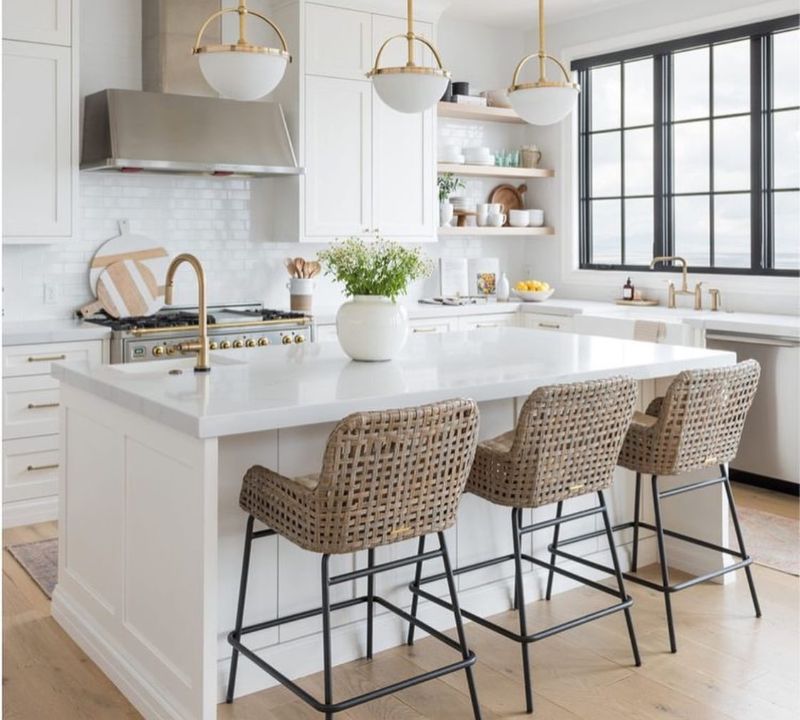A Safe Place to Grow in Recovery

What Is a Sober Living Program?
If you’re exploring options for maintaining sobriety after treatment, you might wonder what a sober living program is. Picture a supportive, structured environment where you can shift back into daily life. These programs offer a safe, substance-free home to hone your sober living skills, connect with peers, and grow personally. With a focus on accountability and independence, they empower you to regain control and achieve lasting sobriety. Curious about how it all works?

Definition and Purpose of Sober Living Programs
When considering a sober living program, it’s important to understand its definition and purpose. Sober living programs offer a structured recovery environment that bridges the gap between intensive treatment and returning to everyday life.
You’ll find that these programs provide numerous sober living benefits, such as fostering independence while maintaining accountability. They’re designed to support your adjustment by offering a safe, substance-free home where you can practice sober living skills.
In this nurturing setting, you’ll connect with others on similar journeys, building a supportive community that reinforces your commitment to sobriety. The recovery environment encourages personal growth and helps you develop coping mechanisms essential for long-term success.
Key Features of Sober Living Homes
Although every sober living home has its unique characteristics, several key features remain consistent across these supportive environments.
You’ll find that key amenities such as comfortable living spaces, shared communal areas, and access to recovery resources are standard. These homes foster a sense of community and belonging, essential for maintaining sobriety.
While the program duration may vary, each house offers a structured timeline that helps residents shift smoothly back into everyday life.
You’ll gain valuable skills and build lasting relationships during your stay.
- Safety and Support: Feel secure in a drug-free environment.
- Accountability: Experience personal growth with structured routines.
- Peer Support: Connect with others who understand your journey.
Eligibility Criteria for Residents
As you consider joining a sober living program, understanding the eligibility criteria is vital for a smooth shift.
You’ll need to meet certain admission requirements, which guarantee that everyone is ready to embrace a supportive, substance-free environment.
Admission Requirements Overview
Starting on the path to sobriety is a courageous decision, and understanding the admission requirements for a sober living program is an essential first step. The admission process can feel overwhelming, but knowing what’s expected can ease your mind.
You’ll undergo an eligibility assessment to ascertain the program is suitable for your needs and goals. Remember, you’re not alone in this journey.
Here are a few common criteria to keep in mind:
- Commitment to recovery: Demonstrating a sincere desire to live substance-free.
- Completion of detox: Having finished any necessary detoxification prior to entry.
- Willingness to participate: Engaging in group meetings and activities.
These requirements help create a supportive community where you can thrive and rebuild your life.
Substance-Free Commitment Policy
Understanding the admission requirements is just the beginning of your journey towards sobriety. A vital part of joining a sober living program is embracing the substance-free environment. This means you’ll need to fully commit to not using drugs or alcohol, ensuring that your living space remains a safe haven for everyone.
It’s normal to feel apprehensive about this commitment, but remember, you’re not alone. The program offers structured support to help you adhere to this policy. Commitment enforcement is essential for maintaining the integrity of the environment, so regular check-ins and testing might occur.
Typical Daily Structure and Activities
In a sober living program, you’ll find that a consistent morning routine sets a positive tone for the day, helping to build stability and focus.
Engaging in structured group activities throughout the day offers you a sense of community and shared purpose, which can be incredibly uplifting.
As the day winds down, evening reflection practices provide a valuable opportunity to process your experiences and reinforce personal growth.
Morning Routine Benefits
While commencing a journey toward sober living, establishing a morning routine can provide a solid foundation for lasting change.
By embracing morning mindfulness and routine consistency, you create a sense of stability and purpose each day. This practice not only reinforces your commitment to sobriety but also nurtures your mental and emotional well-being.
Imagine waking up with a renewed sense of hope and direction.
A consistent morning routine can offer:
- Clarity: Start your day with a clear mind, ready to face any challenges.
- Empowerment: Feel empowered to make positive choices that align with your goals.
- Peace: Experience a sense of peace and calm, setting the tone for a fulfilling day.
You’re not alone on this path, and every small step counts.
Structured Group Activities
After establishing a morning routine that fosters clarity and empowerment, engaging in structured group activities further strengthens your sober journey.
These activities are essential, offering a supportive environment where you can connect with peers who understand your challenges and triumphs. Group dynamics play a significant role, as interacting with others helps build trust and camaraderie, fundamental for lasting recovery.
Activity planning is thoughtfully designed to include a mix of therapeutic discussions, recreational outings, and skill-building workshops. This balance guarantees that you’re not only learning but also enjoying the process.
These shared experiences foster a sense of community, reminding you that you’re not alone. By participating actively, you’re reinforcing your commitment to sobriety and nurturing personal growth every day.
Evening Reflection Practices
As your day winds down, the practice of evening reflection becomes a powerful tool for reinforcing your progress and intentions. By engaging in evening journaling, you can capture your thoughts, celebrate victories, and identify areas for growth. It’s a moment to acknowledge how far you’ve come.
Consider integrating mindfulness meditation into your nightly routine. This practice helps you cultivate a sense of calm and clarity, allowing you to let go of stress and embrace serenity.
As you reflect, focus on:
- Gratitude: Recognize and appreciate the positive moments of your day.
- Self-compassion: Be kind to yourself, understanding that recovery is a journey.
- Intention-setting: Look forward to tomorrow with renewed purpose.
These evening practices support healing, providing comfort and enhancing your commitment to sobriety.
Benefits of Sober Living Programs
Although overcoming addiction is a challenging journey, sober living programs offer invaluable support and guidance that can make a significant difference in your path to recovery.
These programs provide a safe and structured environment where you can receive emotional support from peers who understand your struggles. This sense of community fosters a nurturing atmosphere that encourages open communication and healing.
Moreover, accountability measures are in place to help you stay on track. By living with others who are also committed to sobriety, you’re held responsible for your actions, which can strengthen your commitment to a substance-free lifestyle.
These programs equip you with essential coping skills and strategies, enhancing your ability to navigate everyday challenges without relying on substances. They empower you to reclaim control over your life.
Differences Between Sober Living and Rehab Centers
While both sober living programs and rehab centers aim to support individuals on their journey to recovery, they serve distinct roles in the process.
Rehab centers offer intensive, structured treatment with a specific rehab duration. This setting provides a foundation, focusing on detox and therapy.
In contrast, sober living programs offer a flexible recovery environment where you continue healing at your own pace.
You might feel:
- Hopeful as you gradually regain independence.
- Encouraged by the supportive, less restrictive atmosphere.
- Empowered to apply coping skills learned in rehab.
In sober living, you’re surrounded by a community committed to long-term sobriety.
While rehab centers are essential for initial stabilization, sober living programs help you shift back to everyday life, maintaining the progress you’ve made.
The Role of Community and Peer Support
In a sober living program, you’ll find that building strong support networks is essential to your recovery journey.
You’re not alone in this process; by surrounding yourself with peers who understand your experiences, you can encourage each other through the highs and lows.
Together, you can share a recovery journey that fosters hope and resilience.
Building Strong Support Networks
Connecting with others who understand your journey can be a powerful catalyst for recovery. In a sober living program, support group dynamics play an essential role in building strong support networks. You’re not alone on this path; peers provide the accountability and encouragement needed to stay committed.
Engage in community events and meetings to foster connections that uplift and inspire. These relationships can:
- Offer genuine empathy and understanding
- Provide a sense of belonging and acceptance
- Encourage open and honest communication
Building these connections guarantees you’re surrounded by people who genuinely care about your progress. Peer accountability helps you stay focused and resilient, reminding you that your journey is shared.
Embrace the strength found in these networks, knowing they’re vital to your recovery success.
Encouraging Shared Recovery Journeys
As you navigate your path to recovery, the power of community and peer support becomes undeniable. Connecting with others who’ve faced similar challenges offers you a sense of belonging and understanding.
Shared experiences create a foundation where you can build supportive friendships, offering strength and encouragement through your journey. In a sober living program, you’re surrounded by people who genuinely understand the ups and downs of recovery because they’ve been there too.
These shared recovery journeys foster an environment where you feel safe to express yourself without judgment. By participating in group activities and meetings, you’ll find that others’ success stories can be just as inspiring as your own.
Embrace the opportunity to learn, grow, and heal together in this supportive community.
Rules and Regulations in Sober Living Homes
Although adjusting to sober living can be challenging, understanding the rules and regulations of sober living homes is essential for a smooth shift.
House rules and resident responsibilities are in place to help you maintain sobriety and create a supportive environment. Embrace these guidelines as they provide structure and stability. You might find comfort in knowing you’re not alone in this journey.
- Connection: Build strong bonds with fellow residents who genuinely understand your struggles.
- Accountability: Feel empowered by meeting your responsibilities and contributing to a harmonious living space.
- Hope: Believe in your ability to change and grow, knowing that every day is a step toward a healthier life.
Financial Considerations and Funding Options
While embracing the structure and community of sober living, it’s important to also consider the financial aspect of your journey. Balancing costs can feel overwhelming, but understanding your options can ease this burden.
Start by exploring various funding sources available to support your stay. Some sober living homes accept insurance, while others offer sliding scale fees based on income.
Don’t hesitate to ask about financial aid programs that can help make your change more affordable. Grants, scholarships, or nonprofit funding may be available to you too.
Remember, investing in your recovery is invaluable, and there are resources to assist you. Reach out to local organizations and online forums for guidance and support in steering through these financial considerations.
You’re not alone in this journey.
How to Choose the Right Sober Living Program
Choosing the right sober living program is essential to your recovery journey. It’s important to find a program that feels like home and offers personalized plans tailored to your needs.
Consider location options that provide the right environment and support network to help you thrive. Here are some key factors to guide your decision:
- Supportive Community: Find a place where you feel accepted and encouraged.
- Flexible Structure: Look for programs offering personalized plans that adapt as you grow.
- Proximity to Resources: Choose a location that gives you access to therapy, work, and social support.
Frequently Asked Questions
Can Pets Be Brought to a Sober Living Home?
You’re wondering if pets can join you in a sober living home.
Pet policies vary, so it’s vital to check with the specific program. Some places understand pets provide emotional support and might allow them, especially if they’re registered as emotional support animals.
This can be comforting during recovery. Always communicate openly with the facility to explore your options.
How Does One Handle Relapse in a Sober Living Program?
When you face relapse in a sober living program, it’s essential to identify your relapse triggers.
Reach out for support and discuss them openly with your peers or mentors.
Implement coping strategies like mindfulness or engaging in activities that steer you away from those triggers.
Remember, relapse doesn’t mean failure. It’s a chance to learn and strengthen your resolve.
Stay connected, and don’t hesitate to seek help when needed. You’re not alone in this journey.
Are Visitors Allowed in Sober Living Homes?
When you’re curious about visitor policies in sober living homes, it’s important to know that rules can vary.
Many homes have guest restrictions to maintain a safe, supportive environment. You might find that some allow visitors only during certain hours, while others might’ve stricter policies.
It’s always best to ask the specific home about their rules, ensuring you or your loved one can stay connected while prioritizing recovery.
What Is the Average Length of Stay in a Sober Living Home?
You might wonder about the typical stay in a sober living home.
The average duration varies, but most individuals find themselves staying for about 3 to 6 months.
It really depends on your personal journey and needs.
Some may benefit from a longer stay, up to a year, to guarantee a successful change.
Can Residents Work or Attend School While in a Sober Living Program?
Absolutely, you can work or attend school while in a sober living program.
These programs often encourage employment opportunities and education support as part of your recovery journey. They understand that building a stable future is essential, so they create an environment that supports your goals.
You’re empowered to gain skills, maintain responsibilities, and continue personal growth, all while being surrounded by a community that truly understands and supports your journey.
